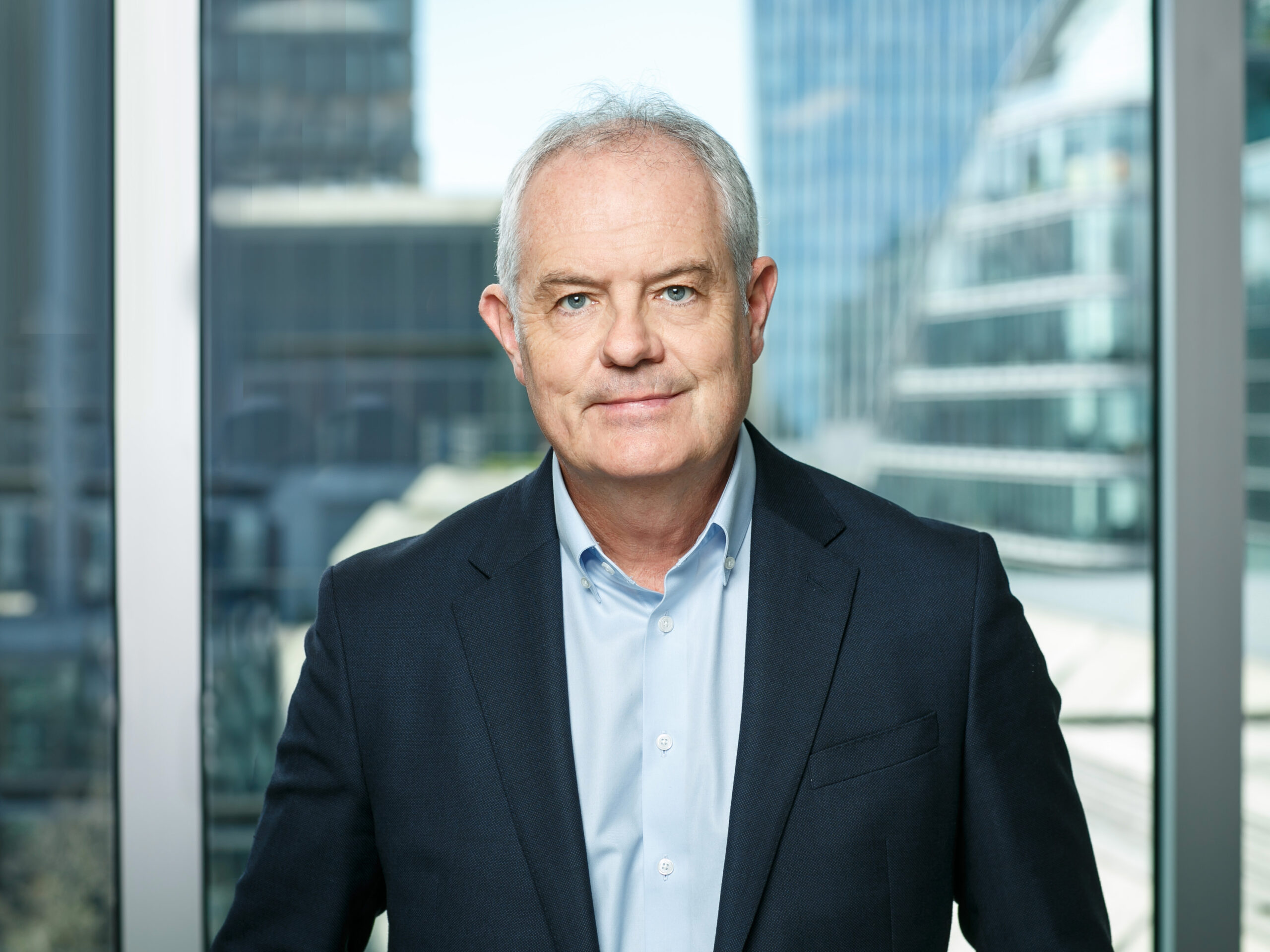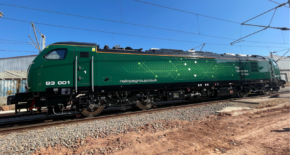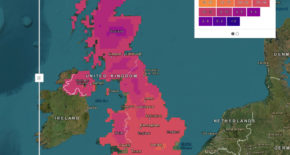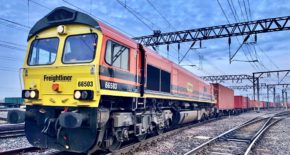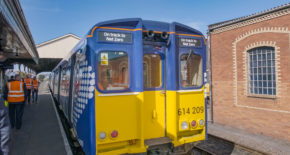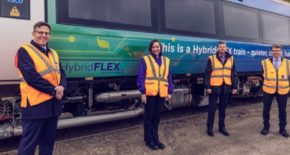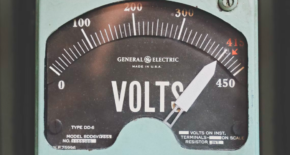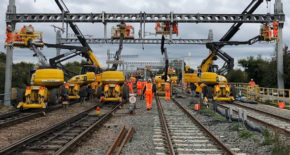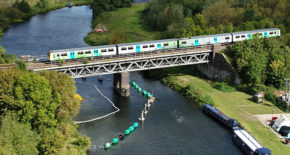Modal shift from road and air travel to rail, combined with actions to lower rail emissions, can make a substantial contribution to tackling climate change and air pollution. Rail emissions will be reduced by new – full and partial – efficient electrification, zero and low carbon vehicles, and a whole-system, whole-life approach to managing carbon.
Critically, the new goal of Intelligent Energy Management of traction power has an important role to play in helping getting the right amount of power to the right places, at the right time.

The functional priority routemaps highlight the steps needed in the next few years to ensure that new technical solutions can underpin progress towards the key goals. You can explore the latest version of the routemap below and check back here to read about progress against the stepping stones over the next few years.
 Select the routemap or progress update, then hover over the image to zoom in / out.
Select the routemap or progress update, then hover over the image to zoom in / out.
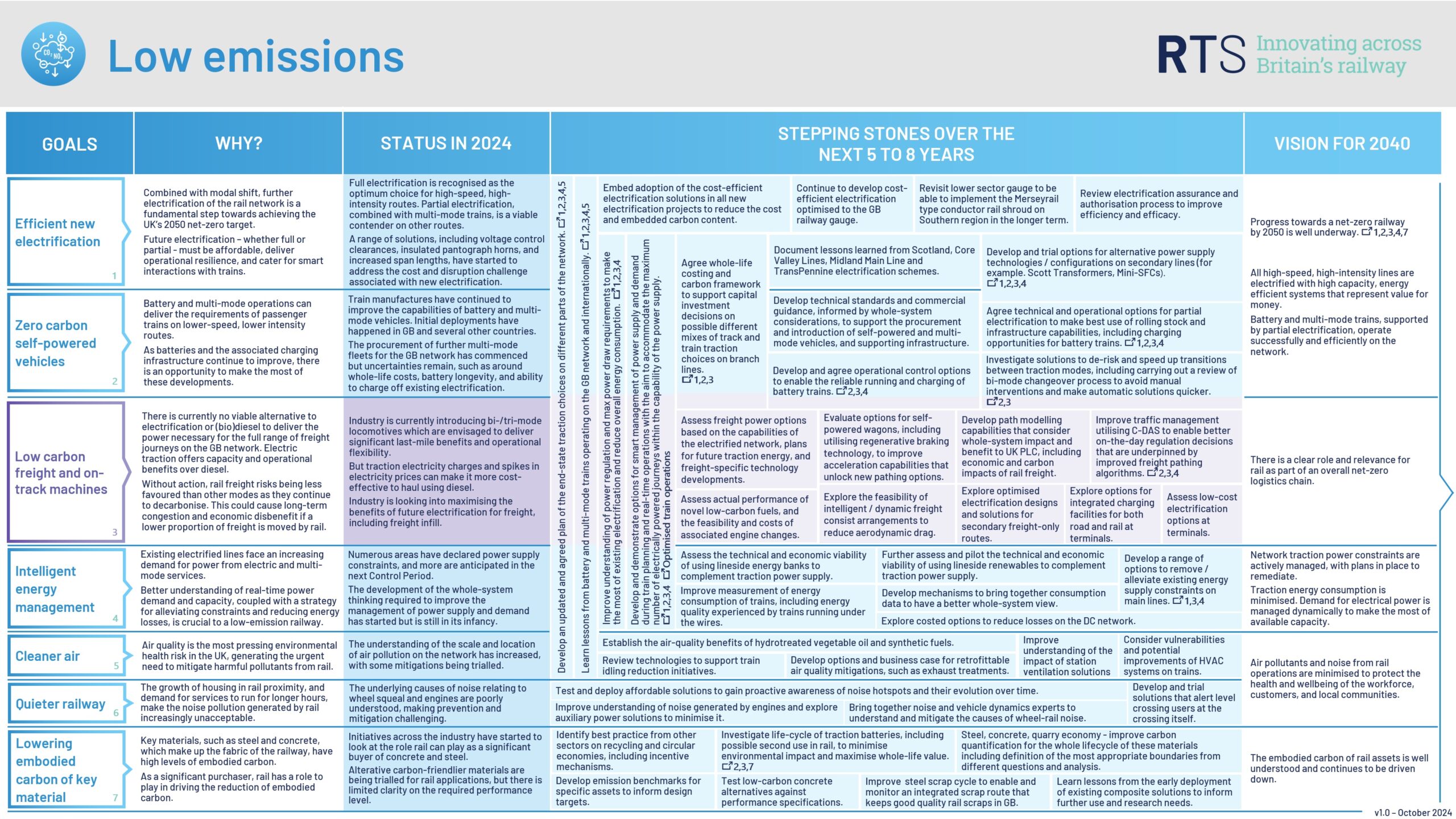

Who is doing what?
Many research and innovation activities support progress towards the goals set out for this priority. Visibility of these is essential to enable greater collaboration and increase the likelihood of success. This is why the RTS puts a spotlight on a selection of these activities, enables you to download the full list of activities of which we are aware, and invites you to add to this picture by sharing your own work.
Share what you are working on
Help keep the industry up to date with progress by sharing your research and innovation activities that are relevant to this priority.




